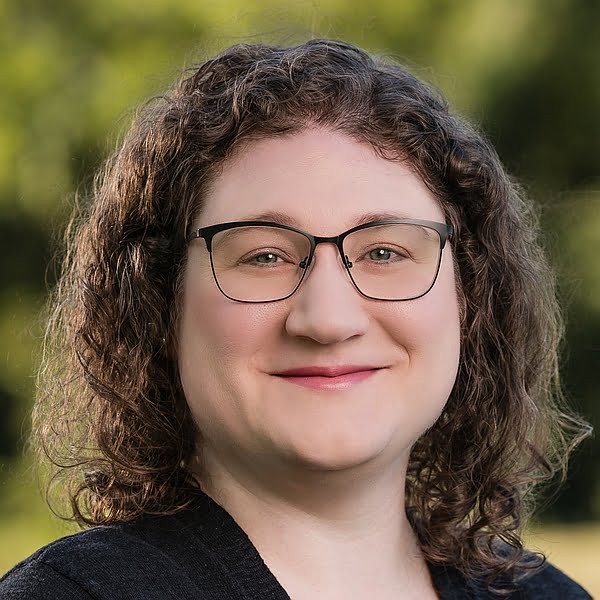Post-Traumatic Stress Disorder (PTSD) is the diagnosis used in the mental health field to describe someone who shows symptoms or behaviors for a month or longer, after having experienced or witnessed a potentially traumatic event or series of potentially traumatic events. In PTSD counseling, a traumatic event is defined as one that threatens death, serious injury, or sexual violation.
Symptoms are grouped around four different categories: intrusion symptoms, avoidance symptoms, negative changes in mood or cognitive behavior, and alterations in arousal activity (changes in emotional and physiological responses that often occur after experiencing trauma).
While these labels are to some benefit, biblical PTSD counseling is helpful in taking away some of the “medical jargon” around what is essentially a “being human” issue, and one that people have struggled with since time began.
Ways That Biblical PTSD Counseling Could Help
Here are some ways in which biblical PTSD counseling provides a more comprehensive solution over secular psychology:
Biblical PTSD counseling removes the “disorder” label
It can be devastating for a person seeking out PTSD counseling to receive a diagnosis that makes them feel as though there is no cure. They might feel hopeless and helpless, with the term “disorder” sending a message that they are weak or irrevocably damaged. A trained counselor using biblical insight will assert from the beginning that post-traumatic stress is a normal and common reaction to an extreme situation.
 It is comforting to hear that far from being disproportionate to what has been experienced, it is in line with a human response to things that are not part of God’s good creation. They are things that are the result of and occurring in a broken world; they will not be present in heaven one day, where “death will be no more; grief, crying, and pain will be no more, because the previous things have passed away.” (Revelations 21:4).
It is comforting to hear that far from being disproportionate to what has been experienced, it is in line with a human response to things that are not part of God’s good creation. They are things that are the result of and occurring in a broken world; they will not be present in heaven one day, where “death will be no more; grief, crying, and pain will be no more, because the previous things have passed away.” (Revelations 21:4).
In doing biblical PTSD counseling, we assert that some of the symptoms of PTSD can happen due to our God-given security system, the sympathetic nervous system, often known as the fight or flight system, being negatively impacted.
With PTSD, the fight or flight system functions inappropriately because it misinterprets a non-threatening situation as threatening, when triggered by associations linked to the trauma they’ve experienced. So, a war veteran who sees a black garbage bag on the side of the road might have a panic attack, with the brain recalling data from an attack he survived many years ago.
Biblical PTSD counseling has a different goal
A person struggling with PTSD might go to counseling with the goal of being completely cured from their symptoms and able to move on with their life. While being able to cope with daily life is certainly part of biblical PTSD counseling, the primary goal should not be the eradication of painful memories.
While God can certainly help minimize their occurrences or even remove them completely, biblical counseling is about using the suffering we experience in this lifetime to come to an enlarged understanding of God’s character and His love for us, even in the most painful moments of our lives. Biblical PTSD counseling aims to help move the person along in their process of becoming more Christ-like, going from Post-Traumatic Stress to Post-Traumatic Sanctification.
Biblical PTSD counseling will unpack the truth of Scripture
PTSD counseling from a biblical perspective differs from secular counseling in that unpacking the truth of Scripture will be the focus of sessions. While PTSD can be complex and persistent, and vary from individual to individual, there is no human problem that cannot be worked on through God’s word, whose “divine power has given us everything we need for a godly life through our knowledge of him who called us by his own glory and goodness” (2 Peter 1:3).
Biblical PTSD counseling could center around reinforcing the truth of who an individual is as a child of God, as trauma can reveal where we might have overemphasized something else as a focus for our identity. Helping someone shift the focus of identity from what has happened to them to who they are in Christ is essential to provide strength, hope, and a new direction going forward.
 The Bible has much to say about suffering and how God uses the suffering of Christians to grow them and make them more like Jesus. God does not cause suffering, but it happens as a result of living as fallen creatures in a sinful world. God can turn it to good if we allow Him to do the work of sanctification, however painful it might be.
The Bible has much to say about suffering and how God uses the suffering of Christians to grow them and make them more like Jesus. God does not cause suffering, but it happens as a result of living as fallen creatures in a sinful world. God can turn it to good if we allow Him to do the work of sanctification, however painful it might be.
PTSD counseling for the Christian is about talking through and praying through various biblical principles from Scripture that will, through the work of the Spirit, dislodge strongholds in thinking that might have formed, so that the individual’s mind can be renewed and transformed, and not conformed to the pattern of this world, as in the instruction of Romans 12:2.
Christian PTSD counseling challenges unbiblical thoughts about God
Many people who have walked through the deepest valleys and darkest experiences of life will have difficulty reconciling a loving, mighty God with the reality of their lived trauma. Biblical PTSD counseling is a space in which people can voice their feelings without fear of judgment. They can also be redirected toward the truth of who God is and just how much He loves His people.
They can be reminded that our God does know suffering; Jesus Christ suffered betrayal and a painful death on the cross that wasn’t deserved. While it may take some time for unbiblical thoughts about God to shift, the more a person is pointed to the person of Jesus, the more they will be convinced that they are loved by a God who is grieving their pain even more than they are, and who cares deeply about them and what has happened to them.
PTSD counseling helps to reinterpret the future
PTSD is caused by painful memories, which might never go away. A trained counselor with a biblical understanding will, however, use similar cognitive behavioral techniques to a secular counselor in helping the individual go back and discuss what happened. When this is done carefully and at a manageable pace, it helps process the trauma and also puts it in its place as being in the past.
 Biblical PTSD counseling will meet an individual where they are at, as everyone experiences life through their unique lens. It is not a sprint, nor is it a marathon, as there may be periods of fast growth followed by an impasse. It might be likened more to mountain orienteering, with lots of ups and downs and wrestling with uncomfortable, unknown rocky places.
Biblical PTSD counseling will meet an individual where they are at, as everyone experiences life through their unique lens. It is not a sprint, nor is it a marathon, as there may be periods of fast growth followed by an impasse. It might be likened more to mountain orienteering, with lots of ups and downs and wrestling with uncomfortable, unknown rocky places.
Another important aspect to bear in mind is that it can be hard for someone attending counseling to relate to and trust someone, even a Christian counselor, if they know that the person doing the PTSD counseling has never experienced the level of trauma that they have.
There is an indescribable connection between two people who have gone through the same traumatic event. As part of holistic counseling and treatment, it can be helpful to connect with other trauma survivors, especially those who have experienced some victory over their PTSD.
The good news, however, is that the role of the Christian counselor using a biblical approach is not to empathize completely (although they will certainly sympathize and show care and concern) but rather to present and lay it on the individual’s heart that God is the one in whom we find our full comfort.
Ultimately, the truth of 1 Corinthians 10:13 convicts us that while we might have temptations that threaten to overtake us, God is faithful, and if we kneel at the foot of the cross, we will find that he provides a way of escape, together with endurance.
Photos:
“Blue Flowers”, Courtesy of Fabrizio Conti, Unsplash.com, CC0 License; “Blue Flowers”, courtesy of Ch Photography, Unsplash.com, CC0 License; “Pink and White Flowers”, Courtesy of Павло Павлюк, Unsplash.com, CC0 License
- Jessica Gallant: Author
I believe no one should struggle alone and I commend anyone with the courage to reach out for help. As a Licensed Professional Counselor, I offer faith-based therapy for teens, adult individuals, and couples. With empathy, transparency, and honesty,...
DISCLAIMER: THIS ARTICLE DOES NOT PROVIDE MEDICAL ADVICE
Articles are intended for informational purposes only and do not constitute medical advice; the content is not intended to be a substitute for professional medical advice, diagnosis, or treatment. All opinions expressed by authors and quoted sources are their own and do not necessarily reflect the opinions of the editors, publishers or editorial boards of Stone Oak Christian Counseling. This website does not recommend or endorse any specific tests, physicians, products, procedures, opinions, or other information that may be mentioned on the Site. Reliance on any information provided by this website is solely at your own risk.






